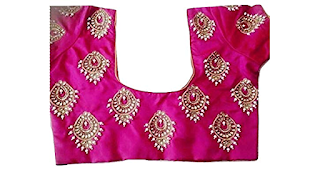What Happens When We Throw Clothes: Understanding the Impact of Clothing Disposal
Introduction
Have you ever wondered what happens when we throw clothes away? Many people discard their old garments without considering the consequences, but in reality, the choices we make about clothing disposal have a significant impact on the environment, economy, and society as a whole. In this article, we will explore the journey of our discarded clothes and shed light on the consequences of our actions.
The Waste Crisis: Clothing in Landfills?
Over the years, clothing waste has become a significant contributor to the global waste crisis. When we throw clothes into the trash, they usually end up in overcrowded landfills, where they take up valuable space and contribute to the production of harmful greenhouse gases. Synthetic fibers used in many modern garments can take hundreds of years to decompose, polluting the surrounding soil and water sources in the process.
So, what can we do to minimize the impact of clothing disposal?
Recycling to the Rescue
Recycling is a crucial step in reducing the environmental footprint of clothing disposal. Instead of throwing clothes away, consider donating them to charities, thrift stores, or clothing banks. These organizations often resell or distribute the donated items to those in need, extending the lifespan of the garments and reducing the demand for new clothing production.
Additionally, there are textile recycling facilities that specialize in reprocessing discarded garments. These facilities can transform old clothes into new materials, such as insulation or carpet padding. By recycling, we can help reduce the amount of clothing waste that ends up in landfills while also supporting a more circular economy.
Secondhand Market: A Sustainable Alternative
Another sustainable option is to embrace the secondhand market. Buying pre-owned clothes not only gives garments a second life but also reduces the demand for new production. Thrift stores, consignment shops, and online platforms dedicated to secondhand fashion offer a wide range of stylish and affordable options.
By participating in the secondhand market, we can contribute to a more sustainable fashion industry and reduce the environmental impact associated with clothing production. Moreover, exploring the world of vintage and unique pieces can add a distinctive touch to our personal style.
Repurposing and Upcycling: Unleashing Creativity
Repurposing and upcycling are creative ways to give old clothes a new purpose. Instead of throwing away worn-out or outdated garments, we can transform them into something useful or stylish. The options are endless — from turning old t-shirts into tote bags to transforming jeans into stylish shorts.
Not only does repurposing allow us to express our creativity, but it also saves resources and reduces waste. By thinking outside the box and finding new uses for our old clothes, we can support a more sustainable and mindful approach to fashion.
The Future of Clothing Disposal
With growing awareness about the environmental impact of clothing waste, the fashion industry is undergoing a transformative shift towards more sustainable practices. Brands are implementing innovative recycling technologies and exploring eco-friendly materials to create clothes that leave a lesser ecological footprint.
However, the responsibility doesn't solely lie with the industry. As consumers, we have the power to drive change through our everyday choices. By adopting more conscious shopping habits, recycling, and embracing the secondhand market, we can contribute to a more sustainable future for fashion.
Conclusion
It is crucial to understand the consequences of our actions when it comes to clothing disposal. The choices we make about discarding our clothes can have far-reaching effects on the environment, economy, and society. By recycling, embracing the secondhand market, and exploring creative alternatives, we can turn the tide on clothing waste and be part of the solution. Together, let's strive for a fashion industry that values sustainability and responsible consumption.



Comments
Post a Comment